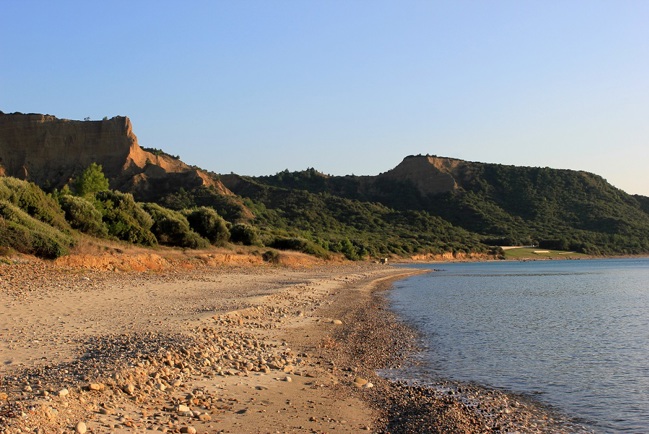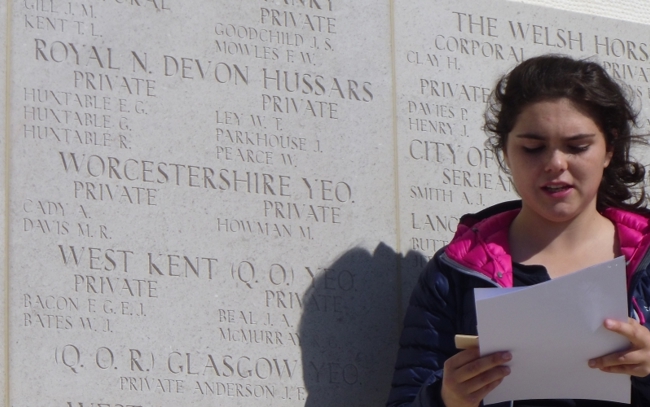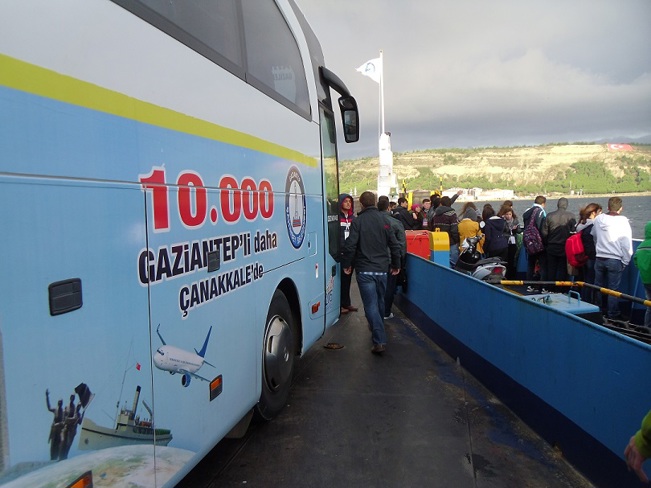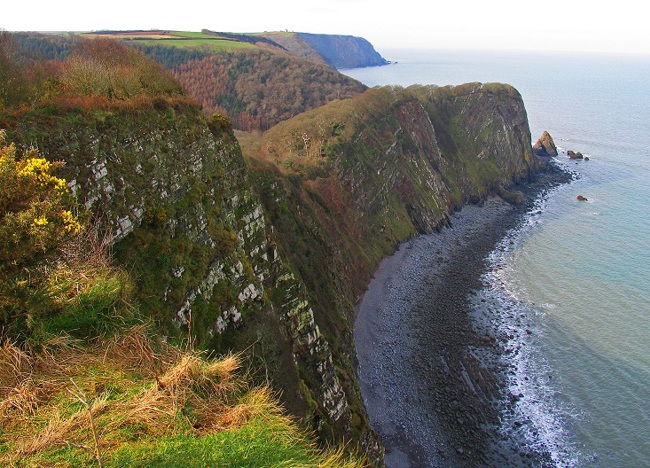The North Devon coast. (Wikipedia Photo: NHenbert)

Anzac Cove, Gallipoli. (Wikipedia Photo: Julian Nitzsche)
This was the third and final visit to the Gallipoli peninsula that the Gallipoli Centenary Education Project has been able to organise. The pupils, aged 14-17 years, were from West Buckland School near Barnstaple in Devon. Chris Allin, History teacher at the school, who accompanied the children said, ‘Their attitudes have definitely been changed – even my own – about Muslim countries. These students will find out that the only way to get rid of ignorance is to actually travel around and meet people from other countries. It’s obvious isn’t it? Otherwise you’re just depending on the media. This has encouraged them not to jump to assumptions, but to actually weigh up the evidence and delve a bit deeper.’

Lydia Clements, 17, reads a eulogy to Private George Huxtable at the Helles Memorial. Photo: R. Clutterbuck
Before their visit each of the students had researched the story of an individual soldier who left Devon for Gallipoli in 1915 and prepared a eulogy to read out at the soldier’s grave. As one student put it, ‘The soldier I researched was killed by a sniper when on sentry duty just after midnight on 8th November (my own birthday). When you’re researching the person it’s quite objective; you’re just looking at it on paper and there’s no connection, whereas when you go to the grave you see him amongst all the other soldiers and you feel as though you’ve travelled thousands of miles to go and see that person, to go and commemorate their life and the sacrifice they made. That’s quite emotional: we’ve travelled across the world to see that.’
The students also had the opportunity to meet Turkish pupils from the Çanakkale College to exchange views on the campaign. As one student put it, ‘It was really good to get a viewpoint from people our age in Turkey – a good way to understand.’ Interestingly, the trip took place the week before the recent government elections in Turkey, and many of the Turkish students and teachers were alarmed at way that the original secular ideals established by Atatürk are being eroded. You can see interviews with three Turkish students here. Turks regard Gallipoli as the birthplace of their nation, and during their trip the British students saw large numbers of Turkish students visiting the peninsula, many as part of a government funded scheme to send 10,000 young people there during 2015.

One of many coaches on the ferry across the Dardanelles, bringing students from Gaziantep. Photo: R. Clutterbuck
Following the trip the students have worked on a film of their project, which will be presented at North Devon Museum in Barnstaple alongside the work of five other schools when the museum opens a new exhibition to coincide with the centenary of the local regiment’s action in Gallipoli.
Worlds together or worlds apart? The trip certainly made our British students think.

